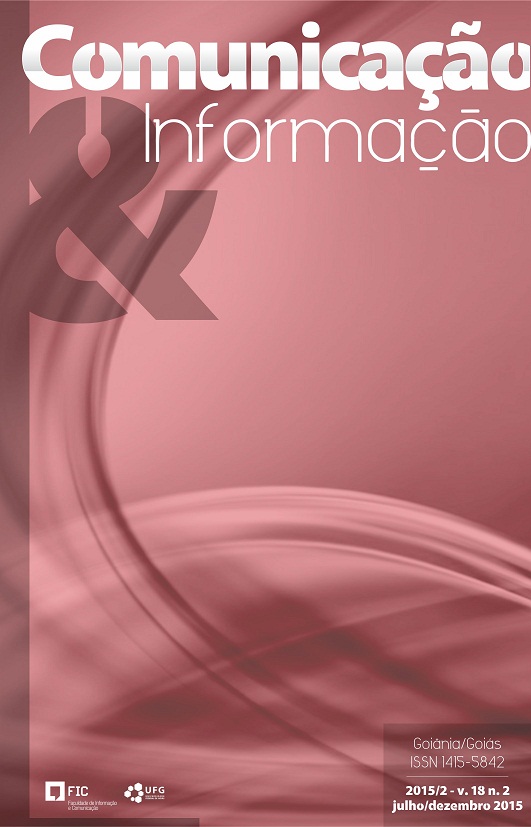The spiritist symbolic culture and the philosophical, scientific and religious in the texts of Allan Kardec
DOI:
https://doi.org/10.5216/37635Keywords:
Dialogism. Discourse analysis. Spiritism. Faith and reason.Abstract
This study aims to understand how the spiritist discourse has become political and socially possible, especially in Brazil, by establishing confrontations and accessions with other knowledge coming from the field of philosophy, science and Christianity, thus gaining legitimacy. It is argued that spiritism can be understood as part of a network of forces that conditioned the dialogue between religion and discursive values of modernity. The theoretical approach and analytical devices are based on Thompson, Bakhtin and Foucault, and it is adopted as a corpus of spiritualism founding texts written by Allan Kardec, The results show that spiritist dialogism is built in a intertextual and discursivelyway, revealing a redefinition of some Greek philosophical thesis, Christian ethics and positivism. It assumes that there is an attempt to associate the "know thyself " (gnôthi seautón) with the “self care” (epiméleia heautoû), based on the assumption of " rational faith " and " spiritist science ".
Downloads
References
ARRIBAS, C. G. Afinal, espiritismo é religião? São Paulo: Alameda Editorial, 2010.
BRAIT. B. Bakhtin e a natureza constitutivamente dialógica da linguagem. In: BRAIT. B. (Org.). Bakhtin, dialogismo e construção do sentido. Campinas: Unicamp, 1997. p. 91-101.
BAKHTIN, M. Marxismo e filosofia da linguagem. São Paulo: Hucitec, 1979.
BOURDIEU, P. O poder simbólico. Lisboa: Difel, 1989.
FOUCAULT, M. A arqueologia do saber. 7. ed. Rio de Janeiro: Forense Universitária, 2007.
FOUCAULT, M. A hermenêutica do sujeito. São Paulo: Martins Fontes, 2006.
FOUCAULT, M. A ordem do discurso. São Paulo: Loyola, 1996.
FERNANDES, P. C. C. As origens do espiritismo no Brasil: razão, cultura e resistência no início de uma experiência (1850-1914). 2008. f. 139. Dissertação (Mestrado em Sociologia)- Instituto de Ciências Sociais, Universidade de Brasília, Brasília, 2008.
KARDEC, A. O livro dos espíritos. Rio de Janeiro: FEB, 1975.
KARDEC, A. O evangelho segundo do espiritismo. Rio de Janeiro: FEB, 2013.
KARDEC, A. A Gênese. Brasília: FEB, 1996
KARDEC, A. O que é espiritismo? Rio de Janeiro: FEB, 1999.
MAINGUENEAU. D. A propósito do Ethos. In: MOTA, A. R. L; SALGADO, L. (Orgs.). Ethos discursivo. São Paulo: Contexto, p.11-29, 2008.
THOMPSON, J. Ideologia e cultura moderna: teoria social crítica na era dos meios de comunicação de massa. Petrópolis: Vozes, 1995.
Published
How to Cite
Issue
Section
License
Os autores dos trabalhos publicados na revista Comunicação e Informação retêm os direitos autorais sem restrições e concedem à revista o direito de primeira publicação, com o trabalho simultâneo licenciado sob a Licença Creative Commons Atribuição-NãoComercial que permite o compartilhamento do trabalho para fins não comerciais com reconhecimento da autoria e o privilégio de publicação primeiramente por esta revista. Caso o texto venha a ser publicado posteriormente em outro veículo, solicita-se aos autores informar que o mesmo foi originalmente publicado como artigo na revista Perspectiva, bem como citar as referências bibliográficas completas dessa publicação.
Os direitos autorais dos artigos pertencem aos autores e o conteúdo dos artigos assinados é de responsabilidade exclusiva dos autores.
A revista se reserva o direito de efetuar, nos originais, alterações de ordem normativa, ortográfica e gramatical, com o intuito de manter o padrão culto da língua, respeitando, porém, o estilo dos autores.
A revista também se reserva o direito de traduzir o artigo, no todo ou em parte, para o inglês ou para o português, dependendo do idioma em que o artigo tenha sido escrito originalmente.



